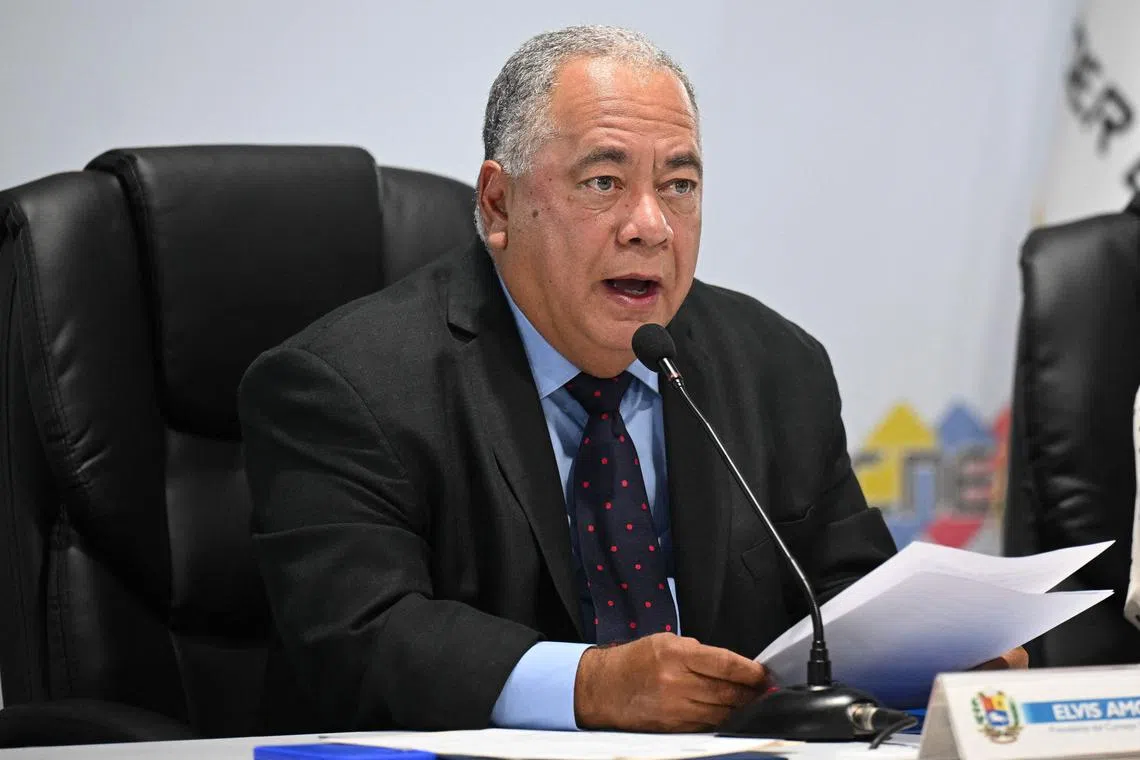Venezuela revokes invitation for EU election observers during presidential vote
Sign up now: Get ST's newsletters delivered to your inbox

Mr Elvis Amoroso, the head of the National Electoral Council, said that EU sanctions are “coercive, unilateral and genocidal”.
PHOTO: AFP
CARACAS - Venezuela has revoked its invitation for the European Union to send election observers for a presidential contest in July, Mr Elvis Amoroso, the head of the National Electoral Council (CNE) said on May 28.
Earlier this month, the EU temporarily removed individual sanctions on Mr Amoroso, a move which he rejected, saying all sanctions on Venezuela should be lifted.
Shortly afterward, the government-controlled legislature approved a measure to ask the CNE to revoke the invitation for EU electoral observers.
“They are not worthy people to come to this country ... while they maintain sanctions,” Mr Amoroso said while reading a statement on state television.
EU sanctions are colonialist and “coercive, unilateral and genocidal”, Mr Amoroso said in the statement.
The Community of Latin American and Caribbean States (CELAC), the Caribbean Community (CARICOM), a panel of experts from the United Nations, the African Union and the Carter Centre, among others, will attend as observers, Mr Amoroso added.
The July vote is the first time in a decade the opposition, which boycotted the 2018 election, has participated in a presidential contest.
President Nicolas Maduro of the Socialist ruling party is seeking his third term, while former ambassador Edmundo Gonzalez has thrown his hat in the ring on behalf of a major opposition coalition.
Mr Maduro’s government reached a deal with the opposition last year to hold elections, prompting the United States to temporarily ease oil sanctions.
Washington then re-imposed sanctions on the oil industry in April, saying the government had not done enough to make the electoral process fair.
The opposition has heavily criticised the government’s handling of the election, especially after the winner of its primary, Ms Maria Corina Machado, had a public office ban upheld by the country’s top court, forcing the selection of Mr Gonzalez as a replacement.
A recent survey showed 50 per cent of voters backing Mr Gonzalez, with 32 per cent favouring Mr Maduro. The poll had a margin of error of 3.16 per cent. REUTERS


